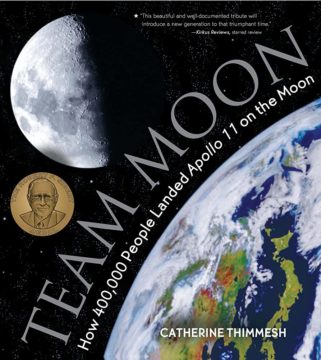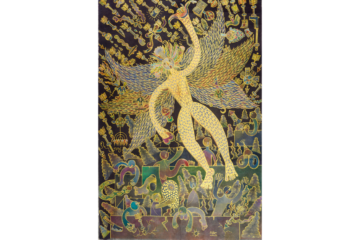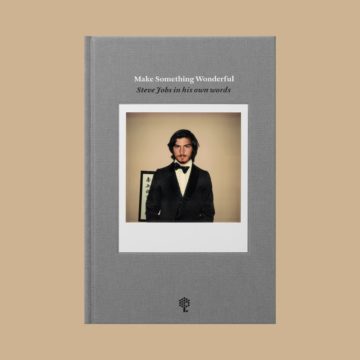Michael Prodger at The New Statesman:
 In 1849 Dante Gabriel Rossetti, the 21-year-old poet-artist and founder member of the Pre-Raphaelite Brotherhood, met a milliner’s assistant named Elizabeth Siddal. She was the daughter of a cutlery maker and had artistic aspirations. He was from a highly cultured Anglo-Italian family – his father was a Dante scholar, one of his mother’s brothers was John William Polidori, Lord Byron’s doctor and author of the first vampire story. By 1852 Siddal had become Rossetti’s pupil, lover and primary model and he was possessive enough to stop her sitting for other painters in the Pre-Raphaelite circle. There was a degree of transmutation in the relationship, too: at times Lizzie was more than flesh and blood, personifying his idea of perfect womanhood that justified a love that transgressed social station.
In 1849 Dante Gabriel Rossetti, the 21-year-old poet-artist and founder member of the Pre-Raphaelite Brotherhood, met a milliner’s assistant named Elizabeth Siddal. She was the daughter of a cutlery maker and had artistic aspirations. He was from a highly cultured Anglo-Italian family – his father was a Dante scholar, one of his mother’s brothers was John William Polidori, Lord Byron’s doctor and author of the first vampire story. By 1852 Siddal had become Rossetti’s pupil, lover and primary model and he was possessive enough to stop her sitting for other painters in the Pre-Raphaelite circle. There was a degree of transmutation in the relationship, too: at times Lizzie was more than flesh and blood, personifying his idea of perfect womanhood that justified a love that transgressed social station.
That sort of veneration is inherently fragile and although the pair married in 1860 their liaison was far from tranquil. He painted and drew her obsessively but he also feared his parents’ disapproval and refused to introduce Lizzie to them.
more here.

 With alarms sounding and fuel running out, Neil Armstrong came within seconds of crashing the Apollo 11 landing module: “BAM! Suddenly, the master alarm in the lunar module rang out for attention with all the racket of a fire bell going off in a broom closet. ‘Program alarm,’ astronaut Neil Armstrong called out from the LM (‘LEM’) in a clipped but calm voice. ‘It’s a “twelve-oh-two.”‘ “‘1202,’ repeated astronaut Buzz Aldrin. They were 33,500 feet from the moon.
With alarms sounding and fuel running out, Neil Armstrong came within seconds of crashing the Apollo 11 landing module: “BAM! Suddenly, the master alarm in the lunar module rang out for attention with all the racket of a fire bell going off in a broom closet. ‘Program alarm,’ astronaut Neil Armstrong called out from the LM (‘LEM’) in a clipped but calm voice. ‘It’s a “twelve-oh-two.”‘ “‘1202,’ repeated astronaut Buzz Aldrin. They were 33,500 feet from the moon. Shortly after the birth of his sister Virginia in 1951, Springsteen’s family moved in with his paternal grandparents. They would stay there through 1956, but the years spent in that house would remain with Springsteen, a thing to untangle. It was a period of his childhood that, in his telling, would come to the fore in Nebraska.
Shortly after the birth of his sister Virginia in 1951, Springsteen’s family moved in with his paternal grandparents. They would stay there through 1956, but the years spent in that house would remain with Springsteen, a thing to untangle. It was a period of his childhood that, in his telling, would come to the fore in Nebraska. At the height of the pandemic, researchers raced to develop some of the first effective treatments against COVID-19: antibody molecules isolated from the blood of people who had recovered from the disease.
At the height of the pandemic, researchers raced to develop some of the first effective treatments against COVID-19: antibody molecules isolated from the blood of people who had recovered from the disease. One of the staples of my teaching of comparative politics over the years was to point out the differences between European and American conservatives. The former were generally comfortable with the exercise of state power, and indeed sought to use power to enforce religious or cultural values (the old unity of “throne and altar.”) American conservatives, on the other hand, were different in their emphasis on individual liberty, a small state, property rights, and a vigorous private sector. In Seymour Martin Lipset’s
One of the staples of my teaching of comparative politics over the years was to point out the differences between European and American conservatives. The former were generally comfortable with the exercise of state power, and indeed sought to use power to enforce religious or cultural values (the old unity of “throne and altar.”) American conservatives, on the other hand, were different in their emphasis on individual liberty, a small state, property rights, and a vigorous private sector. In Seymour Martin Lipset’s  Living trapped by viruses, surrounded by culturenature, and exposed to all kinds of media—writers, self-help books, chefs, singers, filmmakers, even comedians—I don’t want to be comforted, yet they pounce on me, to comfort me, to empathize. Startled, I get frightened. And, conversely, I become even more frightened when I’m asked who my poetry comforts. Therefore, when someone even utters the word comfort, I want to run and hide. I don’t think I’ve ever comforted anyone with my writing. Moreover, I think literature betrays the readers’ desire to be consoled. Perhaps literature crosses into a zone where consolation can’t intervene, evaporating any possibility of comfort. Just as there is no geometric or genetic consolation, literary work merely constructs an afterimage or alternative symmetrical pattern of the event that occurs. The ventriloquist lives inside literature. Ventriloquy is a deception. The writer first deceives herself. And she deceives the reader. Both are aware of the deception. The persona crosses into a zone of literature, the symmetrical world of existence. Thus literature is a lie. Fiction set as reality is a lie; poetry set as language is a lie. The ventriloquy of literature moves, riding the spiral of lies. And so there can be no consolation at the end of the lies. There is only failure, grief, and self-erasure.
Living trapped by viruses, surrounded by culturenature, and exposed to all kinds of media—writers, self-help books, chefs, singers, filmmakers, even comedians—I don’t want to be comforted, yet they pounce on me, to comfort me, to empathize. Startled, I get frightened. And, conversely, I become even more frightened when I’m asked who my poetry comforts. Therefore, when someone even utters the word comfort, I want to run and hide. I don’t think I’ve ever comforted anyone with my writing. Moreover, I think literature betrays the readers’ desire to be consoled. Perhaps literature crosses into a zone where consolation can’t intervene, evaporating any possibility of comfort. Just as there is no geometric or genetic consolation, literary work merely constructs an afterimage or alternative symmetrical pattern of the event that occurs. The ventriloquist lives inside literature. Ventriloquy is a deception. The writer first deceives herself. And she deceives the reader. Both are aware of the deception. The persona crosses into a zone of literature, the symmetrical world of existence. Thus literature is a lie. Fiction set as reality is a lie; poetry set as language is a lie. The ventriloquy of literature moves, riding the spiral of lies. And so there can be no consolation at the end of the lies. There is only failure, grief, and self-erasure. Boredom: “If I ever bore you, it’ll be with a knife,” Louise Brooks once said, a line that sums up almost about every Fassbinder movie. RWF constantly employed Brechtian distancing devices to put the strange in estrangement, piercing our defenses of “relating to” and “identifying with” characters, situations. It is the feeling that the world’s a film stage and everyone on it is standing on a trapdoor. Fassbinder’s hand is on the lever and Death is in the wings, waiting for a cue.
Boredom: “If I ever bore you, it’ll be with a knife,” Louise Brooks once said, a line that sums up almost about every Fassbinder movie. RWF constantly employed Brechtian distancing devices to put the strange in estrangement, piercing our defenses of “relating to” and “identifying with” characters, situations. It is the feeling that the world’s a film stage and everyone on it is standing on a trapdoor. Fassbinder’s hand is on the lever and Death is in the wings, waiting for a cue.  IN A CAVERNOUS
IN A CAVERNOUS A
A Sometime probably in 1656 or 1657, Johannes Vermeer painted a painting that we now know as A Maid Asleep. I reference this painting because it hangs at the Metropolitan Museum in New York City. I’ve looked at it many times. I have a relationship with this painting. I’ve loved it for years and for that same amount of time I’ve been trying to figure out why.
Sometime probably in 1656 or 1657, Johannes Vermeer painted a painting that we now know as A Maid Asleep. I reference this painting because it hangs at the Metropolitan Museum in New York City. I’ve looked at it many times. I have a relationship with this painting. I’ve loved it for years and for that same amount of time I’ve been trying to figure out why. How will voters know whether a video of a political candidate saying something offensive was real or generated by AI? Will people be willing to pay artists for their work when AI can create something visually stunning? Why follow certain authors when stories in their writing style will be freely circulating on the internet?
How will voters know whether a video of a political candidate saying something offensive was real or generated by AI? Will people be willing to pay artists for their work when AI can create something visually stunning? Why follow certain authors when stories in their writing style will be freely circulating on the internet? In a recent Wall Street Journal
In a recent Wall Street Journal  For the past two weeks, in a courtroom in lower Manhattan, the journalist E. Jean Carroll has made a straightforward case: a quarter century ago, she says, Donald Trump raped her. The account she gave in the courtroom was the same as it has been since she first revealed this story, in an excerpt of
For the past two weeks, in a courtroom in lower Manhattan, the journalist E. Jean Carroll has made a straightforward case: a quarter century ago, she says, Donald Trump raped her. The account she gave in the courtroom was the same as it has been since she first revealed this story, in an excerpt of